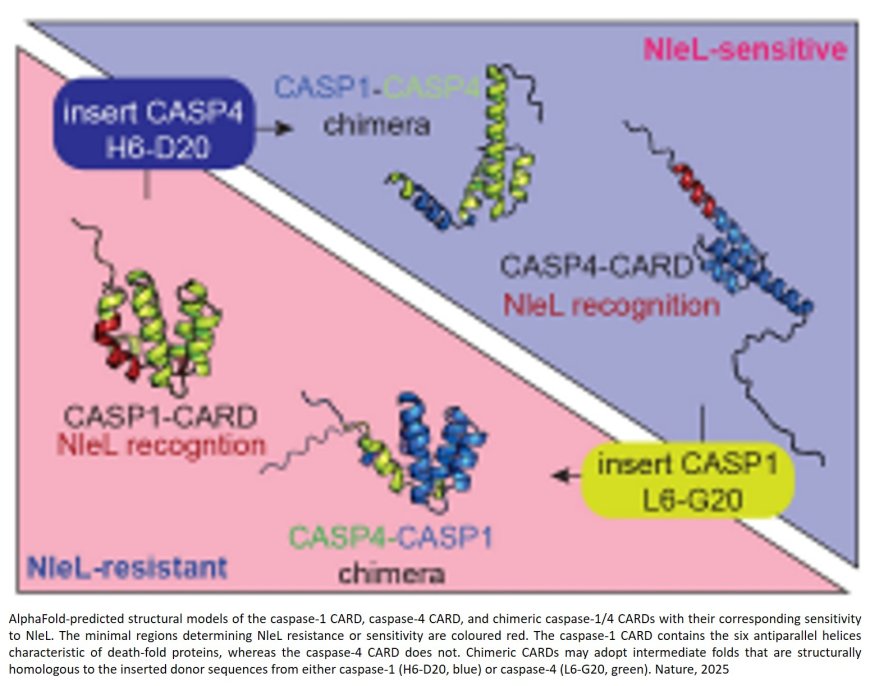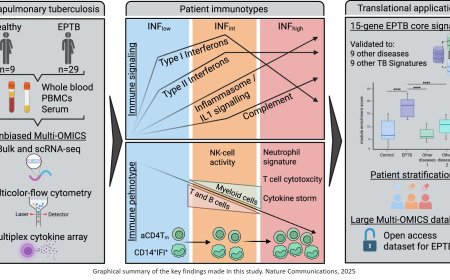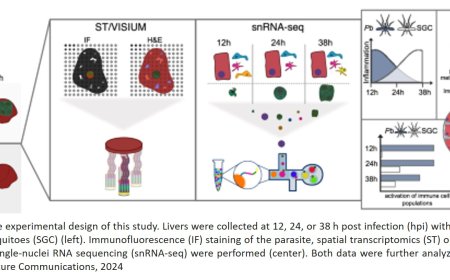Dangerous E. coli strain blocks gut’s defense mechanism to spread infection

When harmful bacteria that cause food poisoning, such as E. coli, invade through the digestive tract, gut cells usually fight back by pushing infected cells out of the body to stop the infection from spreading.
In a new study published in Nature, scientists discovered that a dangerous strain of E. coli — known for causing bloody diarrhea — can block gut this defense, allowing the bacteria to spread more easily.
The bacteria inject a special protein called NleL into gut cells, which breaks down key enzymes, known as caspase-4, ROCK1 and ROCK2, that are needed for infected cells to be expelled. Without this process, the infected cells can’t leave quickly, allowing the bacteria to spread more easily.
Deletion of Rock1 and Rock2 from cultured IECs diminished inflammasome-induced IEC extrusion. Moreover, mice with Rock1- and Rock2-deficient IECs were less effective than wild-type mice at constraining the numbers of Citrobacter rodentium in the colon. Notably, NleL-deficient C. rodentium triggered more IEC extrusion than did wild-type C. rodentium, resulting in diminished colonization of the colon in infected mice.
Usually, when harmful bacteria invade the gut, the body fights back quickly. The first line of defense is the intestinal lining — made up of tightly packed cells that absorb nutrients and keep bacteria out of the bloodstream. If one of these cells gets infected, it sacrifices itself by pushing itself out of the gut lining and into the intestines to be flushed. This helps prevent the bacteria from spreading.
“This study shows that pathogenic bacteria can block infected cells from being pushed out,” said the senior author of the study.
“It’s a completely different strategy from what we’ve seen before. Some bacteria try to hide from being detected, but this one actually stops the cell’s escape route.”
This discovery could pave the way for new treatments that target how bacteria cause disease, rather than killing the bacteria outright, like antibiotics do.
“By understanding how bacteria bypass our body’s defenses, scientists could design anti-virulence therapies that don’t rely on antibiotics,” the author said. “That’s really important, especially as antibiotic resistance continues to rise.”
The findings also carry global health implications. This type of E. coli can be especially dangerous for young children, whose bodies can’t handle fluid loss as well. Scientists warn that climate change and weakened food safety systems could make these infections more common.
“These kinds of bacteria are already a serious problem in places with poor sanitation,” the author said. “But with rising temperatures and cutbacks in food safety monitoring, they’re becoming a growing threat in developed countries too.”
Beyond infectious disease, the discovery could also shed light on gut disorders like IBD, where the gut lining sheds too many cells too often.
“This cell ‘extrusion’ process happens in healthy guts all the time at a low level,” the author said. “But in IBD, it ramps up, and we don’t fully understand why. Similarly, we also see this in gastrointestinal cancers. This research gives us more insight into both sides of the equation, both how the body protects itself and how things go wrong.”













